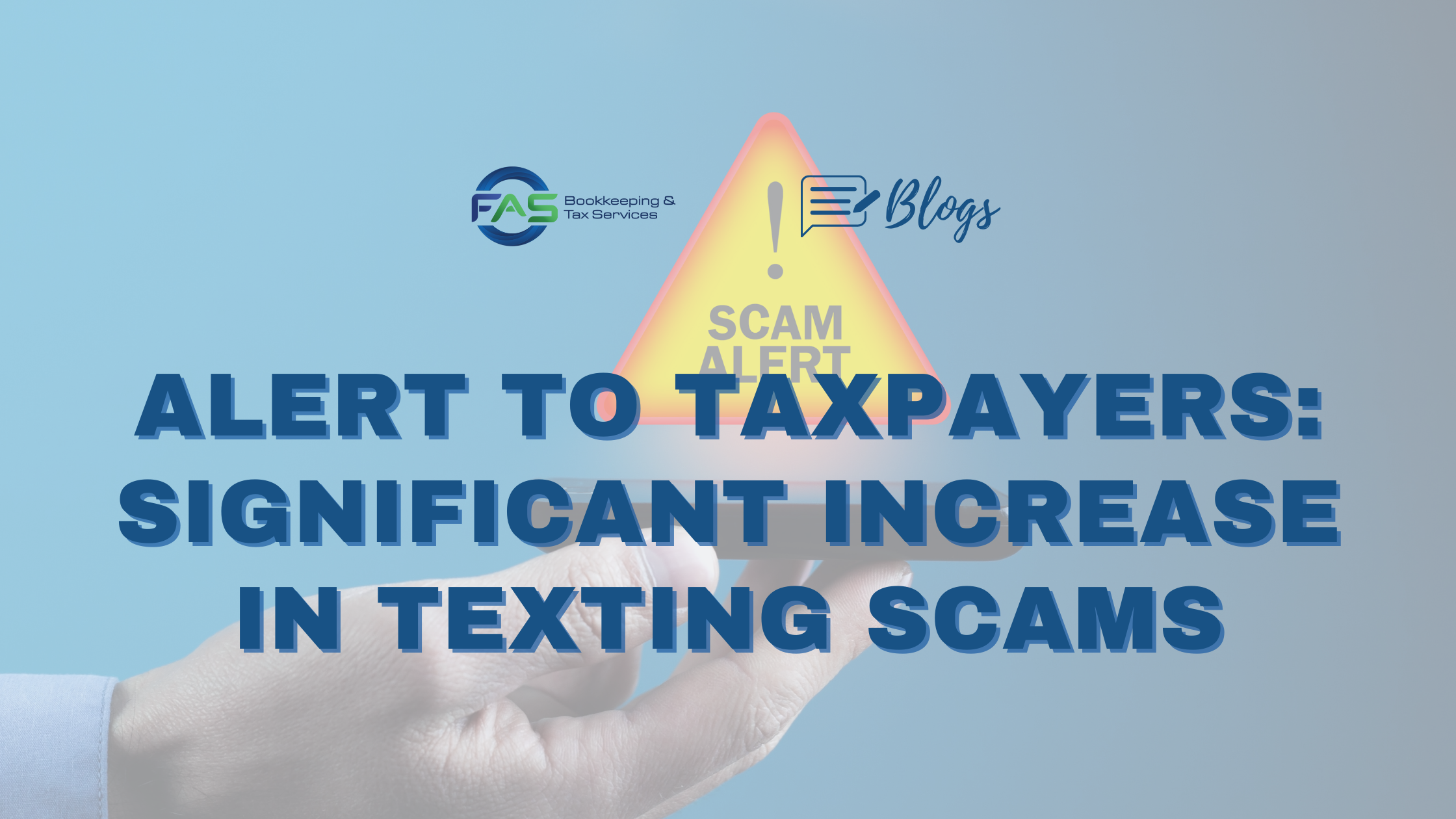The Internal Revenue Service today announced its annual “Dirty Dozen” list of tax scams with a special emphasis on aggressive and evolving schemes related to coronavirus tax relief, including Economic Impact Payments.
The IRS urges taxpayers to refrain from engaging potential scammers online or on the phone. Here are the “dirty dozen” list:
-
Phishing

IRS Criminal Investigation has seen a tremendous increase in phishing schemes utilizing emails, letters, texts and links. These phishing schemes are using keywords such as “coronavirus,” “COVID-19” and “Stimulus” in various ways. These schemes are blasted to large numbers of people in an effort to get personal identifying information or financial account information, including account numbers and passwords.
The IRS will never initiate contact with taxpayers via email about a tax bill, refund or Economic Impact Payments. Don’t click on links claiming to be from the IRS. Be wary of emails and websites − they may be nothing more than scams to steal personal information.
-
Fake Charities

Criminals frequently exploit natural disasters and other situations such as the current COVID-19 pandemic by setting up fake charities to steal from well-intentioned people trying to help in times of need. Fraudulent schemes normally start with unsolicited contact by telephone, text, social media, e-mail or in-person using a variety of tactics.
Taxpayers should be particularly wary of charities with names like nationally known organizations. Legitimate charities will provide their Employer Identification Number (EIN), if requested, which can be used to verify their legitimacy. Taxpayers can find legitimate and qualified charities with the search tool on IRS.gov.
-
Threatening Impersonator Phone Calls

A common form of this scam are threatening phone calls claiming to be with the IRS. The scammer attempts to instill fear and urgency in the potential victim. These calls often take the form of a “robocall”
The IRS will never demand immediate payment, threaten, ask for financial information over the phone, or call about an unexpected refund or Economic Impact Payment.
-
Social Media Scam

Social media enables anyone to share information with anyone else on the Internet. Scammers use that information as ammunition for a wide variety of scams. These include emails where scammers impersonate someone’s family, friends or co-workers.
The IRS reminds taxpayers to protect their social media accounts and to never give out any sensitive information online to avoid identity theft.
-
EIP or Refund Theft

Criminals this year turned their attention to stealing Economic Impact Payments as provided by the Coronavirus Aid, Relief, and Economic Security (CARES) Act. Much of this stems from identity theft whereby criminals file false tax returns or supply other bogus information to the IRS to divert refunds to wrong addresses or bank accounts.
Taxpayers can consult the Coronavirus Tax Relief page of IRS.gov for assistance in getting their EIPs. Anyone who believes they may be a victim of identity theft should consult the Taxpayer Guide to Identity Theft on IRS.gov.
-
Senior Fraud

Senior citizens and those who care about them need to be on alert for tax scams targeting older Americans. Older Americans are becoming more comfortable with evolving technologies, such as social media. Unfortunately, that gives scammers another means of taking advantage. Phishing scams linked to Covid-19 have been a major threat this filing season.
Seniors need to be alert for a continuing surge of fake emails, text messages, websites and social media attempts to steal personal information.
-
Scams Targeting Non-English Speakers

IRS impersonators and other scammers also target groups with limited English proficiency. Phone scams pose a major threat to people with limited access to information, including individuals not entirely comfortable with the English language.
Taxpayers who are recent immigrants often are the most vulnerable and should ignore these threats and not engage the scammers. Remember, the IRS will not contact you this way.
-
Unscrupulous Return Preparers

Selecting the right return preparer is important. Most tax professionals provide honest, high-quality service, but dishonest preparers pop up every filing season committing fraud, harming innocent taxpayers or talking taxpayers into doing illegal things they regret later.
Taxpayers should avoid so-called “ghost” preparers who expose their clients to potentially serious filing mistakes as well as possible tax fraud and risk of losing their refunds. Ghost preparers don’t sign the tax returns they prepare.
Taxpayers should avoid preparers who ask them to sign a blank return, promise a big refund before looking at the taxpayer’s records or charge fees based on a percentage of the refund. Taxpayers can go to a special page on IRS.gov for tips on choosing a preparer.
-
Offer in Compromise Mills

Taxpayers need to wary of misleading tax debt resolution companies that can exaggerate chances to settle tax debts for “pennies on the dollar” through an Offer in Compromise (OIC). These scams are commonly called OIC “mills,” which cast a wide net for taxpayers, charge them pricey fees and churn out applications for a program they’re unlikely to qualify for.
Individual taxpayers can use the free online Offer in Compromise Pre-Qualifier tool to see if they qualify. The simple tool allows taxpayers to confirm eligibility and provides an estimated offer amount. Taxpayers can apply for an OIC without third-party representation; but the IRS reminds taxpayers that if they need help, they should be cautious about whom they hire.
-
Fake Payments with Repayment Demands

Here’s how this scam works: A con artist steals or obtains a taxpayer’s personal data including Social Security number or Individual Taxpayer Identification Number (ITIN) and bank account information. The scammer files a bogus tax return and has the refund deposited into the taxpayer’s checking or savings account. Once the direct deposit hits the taxpayer’s bank account, the fraudster places a call to them, posing as an IRS employee. The taxpayer is told that there’s been an error and that the IRS needs the money returned immediately or penalties and interest will result. The taxpayer is told to buy specific gift cards for the amount of the refund.
The IRS will never demand payment by a specific method. There are many payment options available to taxpayers and there’s also a process through which taxpayers have the right to question the amount of tax they owe.
-
Payroll and HR Scams

Currently, two of the most common types of these scams are the gift card scam and the direct deposit scam.
In the gift card scam, a compromised email account is often used to send a request to purchase gift cards in various denominations. In the direct deposit scheme, the fraudster may have access to the victim’s email account. They may also impersonate the potential victim to have the organization change the employee’s direct deposit information to reroute their deposit to an account the fraudster controls.
BEC/BES scams have used a variety of ploys to include requests for wire transfers, payment of fake invoices as well as others. In recent years, the IRS has observed variations of these scams where fake IRS documents are used in to lend legitimacy to the bogus request.
The Direct Deposit and other BEC/BES variations should be forwarded to the Federal Bureau of Investigation Internet Crime Complaint Center (IC3) where a complaint can be filed.
-
Ransomware

This is a growing cybercrime. Ransomware is malware targeting human and technical weaknesses to infect a potential victim’s computer, network or server. Malware is a form of invasive software that is often frequently inadvertently downloaded by the user. Once downloaded, it tracks keystrokes and other computer activity. Once infected, ransomware looks for and locks critical or sensitive data with its own encryption. In some cases, entire computer networks can be adversely impacted.
Cybercriminals might use a phishing email to trick a potential victim into opening a link or attachment containing the ransomware. These may include email solicitations to support a fake COVID-19 charity. Cybercriminals also look for system vulnerabilities where human error is not needed to deliver their malware.
The IRS and its Security Summit partners have advised tax professionals and taxpayers to use the free, multi-factor authentication feature being offered on tax preparation software products. Use of the multi-factor authentication feature is a free and easy way to protect clients and practitioners’ offices from data thefts. Tax software providers also offer free multi-factor authentication protections on their Do-It-Yourself products for taxpayers.
Be smart, be alert, and avoid these scams by educating yourself about them. The IRS has many articles that can help you identify these different types of scams, be sure to conduct your own research to know everything about them.
If you need bookkeeping and tax help, FAS is here to help you! Contact us today at admin@fas-accountingsolutions.com or at 713-855-8035.




















